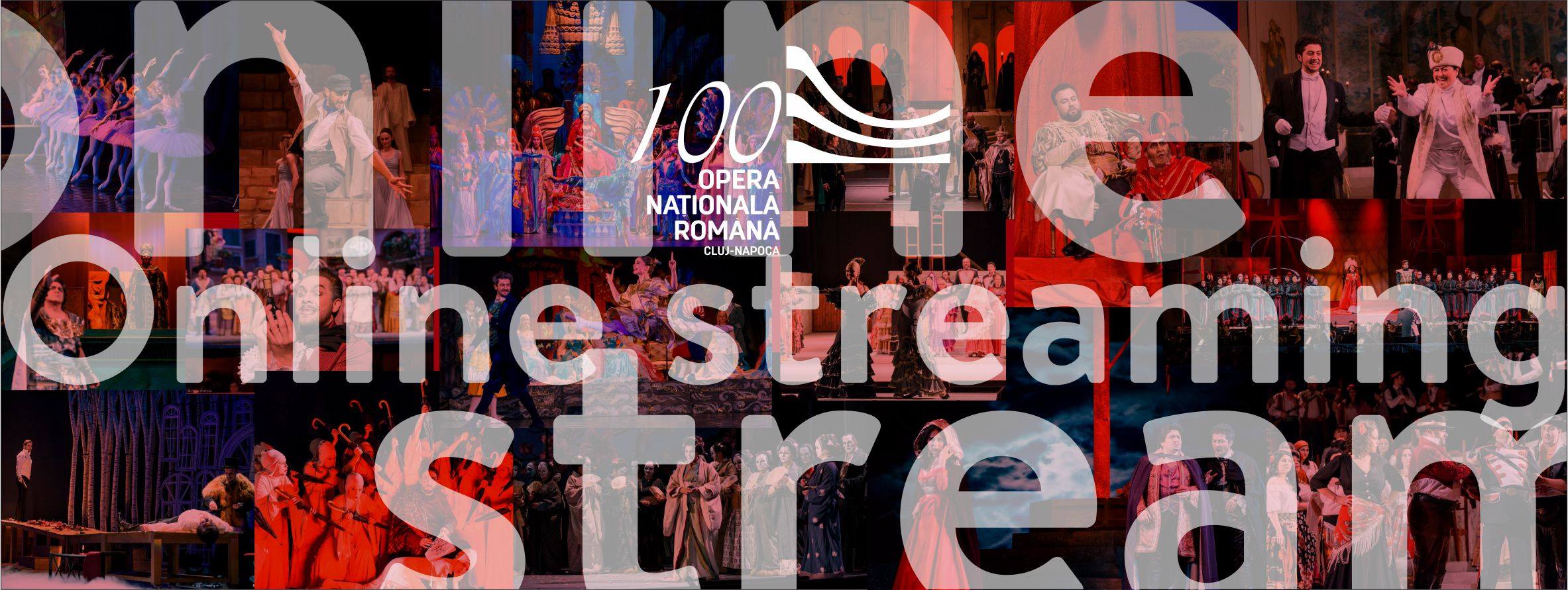
ONLINE PERFORMANCE
distribution
Artistic Direction : Mihaela Bogdan
Scenography adaptation after arh. Cătălin I. Arbore: Valentin Codoiu
Scenic movement: Marius Toda
Choir Master: Emil Maxim
Choir Conductor: Corneliu Felecan
Assitant of Artistic Director: Iulian Ioan Sandu
Stage and backstage direction: Cristina Albu
Filip the second, The King of Spain: Adrian Sâmpetrean (Invitat)
Elisabeta de Valois, The Queen of Spain: Elisabeta Marin (Invitată, Debut)
Don Carlo, infant from Spain: Marius Vlad Budoiu
Princess Eboli: Ramona Zaharia (Invitată)
Rodrigo, Marchiz de Posa: Florin Estefan
The Big inquisitor: Marius Boloș (Invitat)
The Monk: Corneliu Huțanu (Debut)
A voice from heaven: Aida Pavăl (Invitată, Debut)
Tebaldo: Oana Trîmbițaș (Debut)
Lerma count and The Royal Herald: Eusebiu Huțan (Debut)
Contessa D'aremberg: Henrietta Almași
Orchestra and the Choir of Romanian National Opera from Cluj-Napoca
A group of students from College of Choreography and Dramatic Art „Octavian Stroia” Cluj-Napoca
description
show category: Online performance, opera

Recording made in partnership with TVR Cluj. A show dedicated to the Veterans Day and presented on 30.04.2017
Performance in four acts (seven paintings) on a libretto by Achille de Lauzières-Thémines and Angelo Zanardini, after the drama Don Karlos, Infant von Spanien by Friedrich Schiller
Along with other titles written during the period of compositional maturity of Giuseppe Verdi, the opera Don Carlo reflects the new expressive peaks gradually gained and achieved under the impulse offered by the reform of his contemporary Richard Wagner in the field of musical drama. However, unlike the other masterpieces that have enjoyed from the beginning a great degree of popularity and spread in the world of European lyrical theater, but also worldwide (Nabucco, Rigoletto, Trubadurul, La Traviata and others), this road to the same popularity” for „Don Carlo work was quite sinuous.
Following the Paris premiere of its first French version (titled Don Carlos) of March 11, 1867, the work was subject to revisions and adaptations, both in terms of text and script, to be represented at Darmstadt (1868), Senigallia (1868) and on the stage of the Scala Theater in Milan (1884). The four versions up to that time have been added, over time, and others.
Inspired by Friedrich Schiller’s eponymous drama, the action of the Don Carlo opera takes place during the war between France and Spain, in the mid-16th century. On a secret visit to France, Don Carlo – the son of King Philip II of Spain – accidentally meets Elisabeta de Valois, and the two fall in love at first sight. The happiness of getting to know one another will not last too long, as Elizabeth’s hand was promised to King Philip by her father, as a guarantee of the peace treaty between the two countries.
Returning to Spain, Don Carlo’s attempts to re-establish ties with Elizabeth, now his stepmother, and to fulfill his ideal of governing Flanders and gaining independence, will be supported, on the one hand, by the believer. his friend Rodrigo, and disturbed, on the other hand, by the manifestation of hatred and jealousy of Princess Eboli or the abuse of power of the Grand Inquisitor. The tragic end so specific to literary romanticism is under the sign of powerlessness in the face of the machines of power
